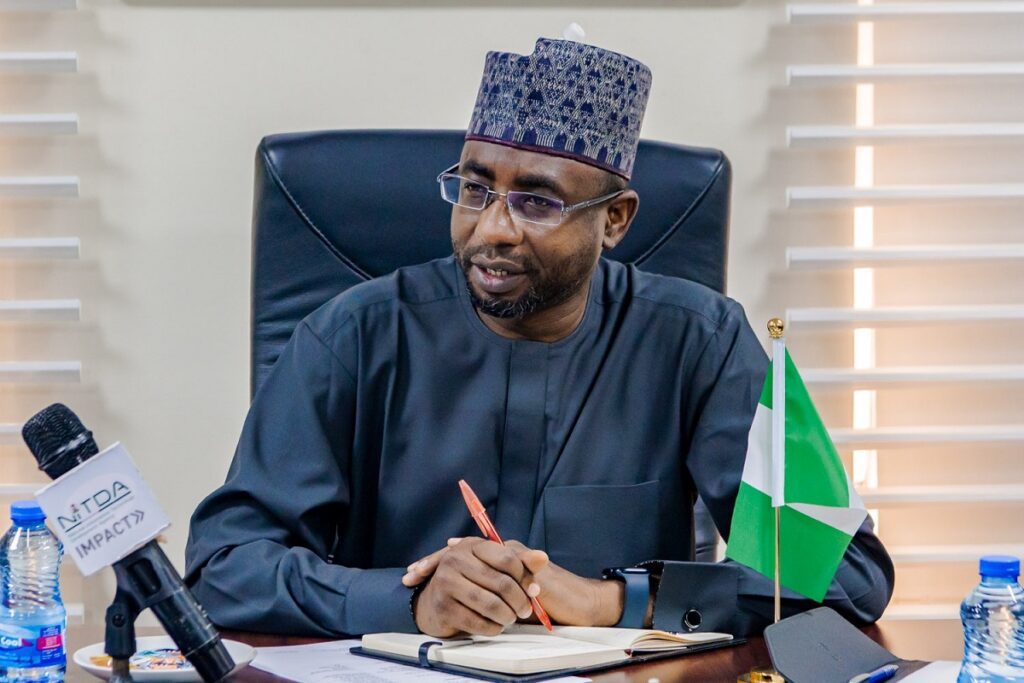…Blockchain, Tokenisation will Boost Economic Development and Asset Management
By Blessing Emmanuel, Abuja
The Director General of the National Information Technology Development Agency (NITDA), Kashifu Inuwa, has called for a unified effort among industry experts, policymakers, and stakeholders to harness the potential of blockchain technology and tokenisation for enhancing asset management and driving economic growth in Nigeria.
Speaking at the Tokenised Economic Conference and Exhibitions themed “Tokenised Economy 2024: Real-World Assets Tokenisation,” Inuwa highlighted the transformative impact these technologies could have on various sectors of the economy.
Organised by Cyberchain in collaboration with BAZE University and NITDA, the conference brought together experts from digital assets finance, capital markets, real estate, and other industries. The discussions revolved around how tokenisation could redefine investment opportunities by offering liquidity, transparency, and accessibility, especially in markets historically plagued by inefficiencies, such as real estate.
Inuwa, represented by Engr. Salisu Kaka, Director of e-Government and Digital Economy Development, emphasised the critical role of technology in driving Nigeria’s GDP. He explained that tokenisation converts physical and digital assets into digital tokens stored on a blockchain, offering new ways to buy, sell, and trade assets. This process allows for secure, efficient, and scalable exchanges of real-world assets, ultimately transforming how sectors like real estate, agriculture, and oil and gas operate.
“Tokenisation introduces the possibility of automating processes, increasing liquidity, lowering investment barriers, and improving transparency,” Inuwa explained.
He cited real estate as a prime example, where traditional investment models are slowed by cumbersome transfer and record-keeping processes. Tokenisation, he suggested, would address these challenges by automating transactions, providing more flexible and inclusive investment opportunities.
He also lauded Lagos State’s initiative to tokenize real estate, calling it a forward-thinking move that could serve as a model for other regions in Nigeria. Inuwa encouraged broader adoption of blockchain across sectors, noting that agriculture, oil and gas, and securities could all benefit from the efficiency and security brought by tokenisation. He added that a solid regulatory framework would be essential in fostering investor confidence and building the necessary infrastructure for a robust tokenised economy.
“Nigeria has the potential to become a leader in Africa’s tokenised economy,” Inuwa said, stressing that investing in infrastructure, education, and regulation would unlock significant economic opportunities. The launch of the National Blockchain Policy and the efforts of the NITDA Blockchain Steering Committee, he said, are key steps toward integrating blockchain technology into Nigeria’s economic fabric.
Speaking alongside Inuwa, Dr. Emomotimi Agama, Director General of the Securities and Exchange Commission (SEC), underlined the broader social and economic implications of tokenisation.
He noted that tokenisation could democratise wealth by breaking down traditional barriers to investment. Historically exclusive assets such as real estate and art, which were once accessible only to high-net-worth individuals, could now be tokenized and made available to a larger, more diverse pool of investors.
“By tokenising assets, we make these valuable investments accessible to everyday people, encouraging a more inclusive financial system,” Agama stated, adding that this shift could drive a wider participation in the economy, creating opportunities for wealth creation and reducing financial inequality.
As Nigeria positions itself to lead Africa’s digital economy, the development of blockchain and tokenisation technologies could mark a turning point for industries, investors, and regulators alike.
With the right support and infrastructure in place, experts believe Nigeria could unlock new levels of economic growth, promoting a more equitable and prosperous future.

